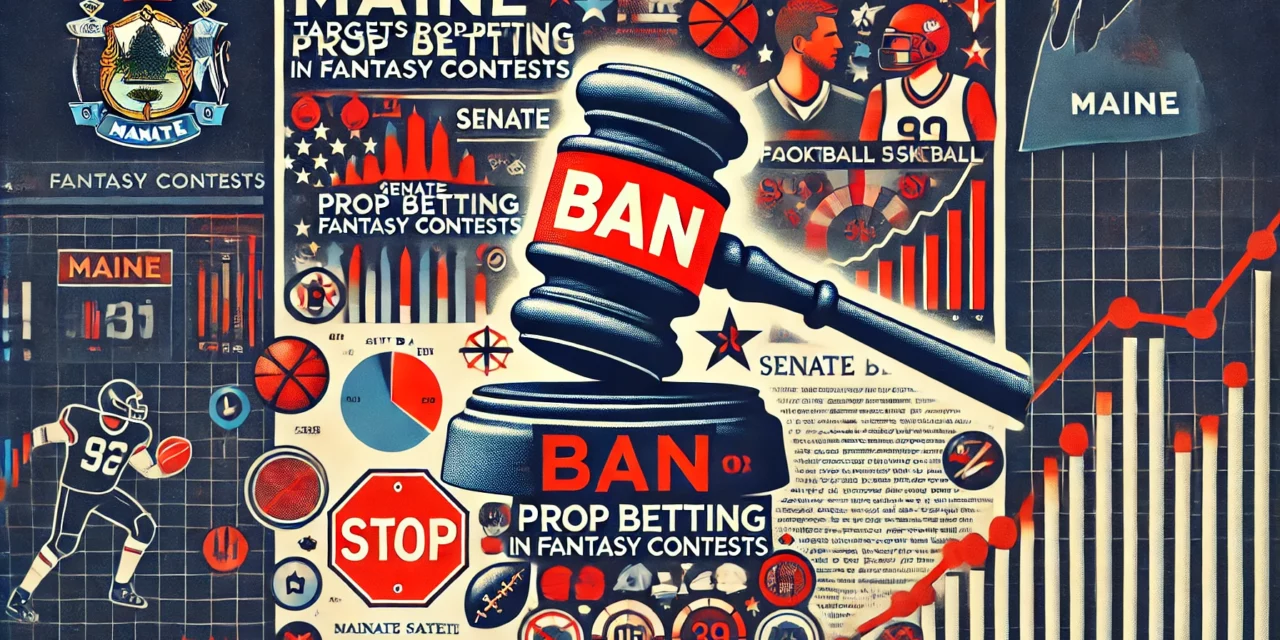A new bill introduced in the Maine Senate seeks to tighten regulations on fantasy sports contests by banning all forms of proposition betting. Senate Bill 33, filed by Democratic Senator Craig Hickman on January 6 and referred to the Committee on Veterans and Legal Affairs on January 8, aims to amend existing fantasy sports laws to provide clearer definitions and regulatory oversight.
The bill’s most significant provision explicitly prohibits fantasy contests from including prop wagers or activities that resemble proposition bets.
Clarifying Proposition Bets
The legislation introduces a precise definition of prop bets, describing them as wagers based on the occurrence or non-occurrence of specific events during a sports game, independent of the game’s final outcome. This includes player or event props such as predicting whether an athlete will achieve a statistical milestone, like total points scored.
The bill also expands the definition of a “fantasy contest” to include contests where six or more participants pay an entry fee to compete. Additionally, it doubles the licensing fees for fantasy contest operators from $2,500 to $5,000 for both initial applications and renewals. Furthermore, it removes the provision allowing operators to run contests while their licenses are pending approval.
Tougher Stance on DFS in Maine
This proposed legislation is the latest move in Maine’s evolving relationship with daily fantasy sports (DFS). While major operators like DraftKings and FanDuel remain active in the state, several smaller providers, including Underdog, ceased operations last year after failing to renew their licenses.
Underdog’s exit followed a $400,000 fine from the Maine Gambling Control Unit (MGCU) over alleged regulatory violations tied to its pick’em contest products. According to MGCU Executive Director Milt Champion, these contests did not align with Maine’s legal definitions, prompting a ban on pick’em fantasy formats in late 2023.
The MGCU’s stricter regulatory approach highlights the state’s intent to maintain firm oversight of the DFS market, even as it becomes increasingly competitive.
Implications Beyond Maine
Maine’s actions reflect a broader trend as states grapple with regulating the fast-growing fantasy sports industry. In Kentucky, for instance, a new bill proposes creating a framework for the Kentucky Horse Racing and Gaming Corporation to regulate fantasy contests.
As more states revise their regulatory frameworks, Maine’s approach could influence other jurisdictions, particularly in balancing consumer protections with industry growth.
A Shifting Landscape for Fantasy Sports in the US
If Senate Bill 33 is enacted, Maine’s fantasy sports landscape will undergo significant changes. Operators will face stricter rules, higher costs, and a complete ban on prop-style betting. While these measures aim to ensure greater transparency and consumer protection, they may also challenge the industry’s ability to attract and retain players.
The bill’s progress will be closely watched by stakeholders nationwide, as it could set a precedent for how other states manage the intersection of regulation and innovation in the fantasy sports arena.





